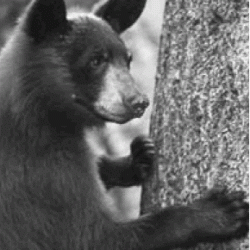Source Institutions
Source Institutions
Add to list Go to activity
Activity link broken? See if it's at the internet archive

In this activity, learners construct possible food webs for six different ecosystems as they learn about the roles of different kinds of living organisms. Learners will also discuss and classify producers vs. consumers and different kinds of consumers (herbivores, carnivores, omnivores, decomposers and scavengers). This lesson guide includes background information, variations and bilingual (English/Spanish) cards.
- 5 to 10 minutes
- 30 to 45 minutes
- 1 cent - $1 per group of students
- Ages 8 - 14
- Activity, Lesson/Lesson Plan
- English, Spanish
Quick Guide
Materials List (per group of students)
- set of crayons: one each of blue, green, red and yellow
- set of Ecosystem Cards representing one ecosystem
- sheet of white construction or drawing paper, 9 in. x 12.
Subjects
-
Life Sciences
-
Diversity of Life
- Plants
- Animals
- Viruses and Bacteria
- Protists and Fungi
- Classification
-
Ecology
- Ecosystems
- Populations
- Energy Flow and Chemical Cycles
-
Diversity of Life
-
The Nature of Science
-
The Scientific Process
- Formulating Explanations
-
The Scientific Process
Informal Categories
- Animals
- Nature and Environment
Audience
To use this activity, learners need to:
- see
- see color
- read
- touch
Learning styles supported:
- Involves teamwork and communication skills
- Involves hands-on or lab activities
Other
Foreign language versions of this resource:
Components that are part of this resource:
Includes assesments for student learning:
This resource is part of:
Access Rights:
- Free access
By:
- Moreno, Nancy P. ; Tharp, Barbara Z.
Rights:
- All rights reserved, Baylor College of Medicine, 2011
Funding Sources:
- National Institute of Environmental Health Sciences, R25 ES10698
- National Center for Research Resources, R25 RR13454
